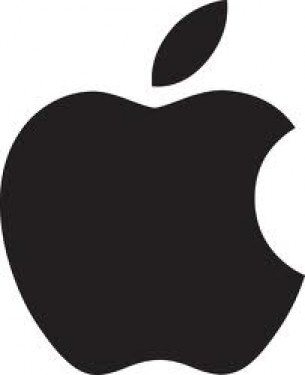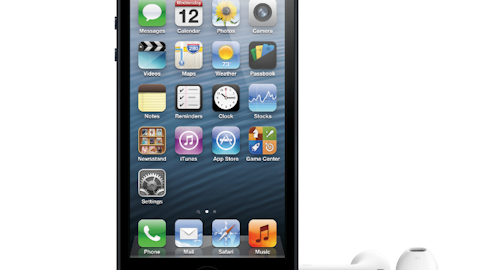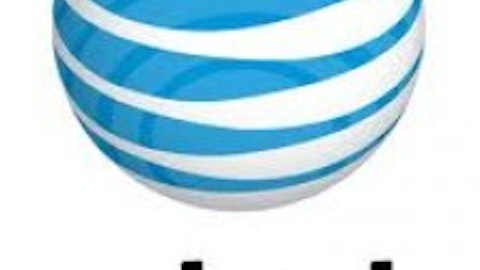
The myth
It generally goes something like this:
Apple Inc. (NASDAQ:AAPL) has an ecosystem. A consumer who purchases an Apple product will be sure to buy other Apple products in place of electronics made by other companies. Buying one product from Apple makes purchasing other products from the company more attractive, as there are strong synergies between the company’s various devices.
David Einhorn has a slightly different take on this myth, but his reasoning is largely the same. In letters to his investors, and a presentation at Ira Sohn, Einhorn explained that Apple’s critics mistakenly view it is as a hardware company. In Einhorn’s mind, Apple Inc. (NASDAQ:AAPL) is a software company that keeps its customers coming back because of its superior software. This is essentially the same reasoning as the oft cited ecosystem.
On the surface this argument may sound attractive. After all, everyone knows at least one Apple super fan in their life: That person who has an iPhone, iPad, Macbook Pro and over a dozen different models of the iPod buried in their closet.
Yet, on closer scrutiny, it simply doesn’t hold up. There may be some superficial benefits to have multiple iDevices, but there aren’t any fundamental synergies that would keep customers loyal to Apple Inc. (NASDAQ:AAPL).
The synergies that do exist are weak at best. What’s worse, technological change is accelerating their irrelevancy, with Apple’s own choices helping along the process!
What is an ecosystem?
But what exactly constitutes an ecosystem? There are a few common things people cite when they talk of Apple’s perceived ecosystem.
The claim:Knowledge of iOS learned from using the iPhone makes continued use of new versions of the device, or different devices running the same operating system, more attractive.
Mobile operating systems are inherently intuitive, especially when compared to their desktop counterparts. The most popular mobile operating system, Google’s Android, is easy enough to learn that the majority of the world’s smartphone users are on it. What’s more, it’s similar enough to iOS that it has been the focal point of numerous, high-profile patent lawsuits.
The claim:All iOS devices have access to mostly the same applications. More, there are some high quality applications exclusive to iOS.
The most commonly used smartphone applications aren’t exclusive to iOS. Applications that started as iOS exclusive were quickly ported to Android after they became successful — Instagram is a great example. Further, there are a number of applications that are not available to iOS users; most of which are aimed at power users — people more likely to spend greater amounts of money on technology. Tasker is a great example, but Businessinsider has put together an entire list.
The claim:iDevices “work well” together.
While this is generally true, it is becoming increasingly irrelevant. The rise of the cloud means that individual pieces of hardware are doing less talking between each other and more talking to the cloud. There is no reason to connect an iPhone to a Macbook to upload photos, when a user can instead transfer them using Dropbox or a similar service.
The claim:There are synergies across accessories; one charger, for example, can be used for multiple different devices.
This was once true, but Apple Inc. (NASDAQ:AAPL) has torpedoed this synergy by introducing a new style of charger. Most devices that compete against Apple’s products use standard cables like HDMI or micro-USB. These cables can be purchased for about one-tenth the cost of an Apple proprietary cable.
The claim:Customers with large iTunes libraries will keep using devices that sync directly with the media store.
This last claim is the most significant of all, but there are signs it is becoming irrelevant. In the realm of music, subscription-based services like Rhapsody and Spotify have seen tremendous growth, as consumers give up their libraries in favor of access to an unlimited catalogue. There are even signs that Apple Inc. (NASDAQ:AAPL) may hasten this transition. The company has been rumored to be working on such a service, and the rumor has been significant enough to affect shares of Pandora.
Apple’s super fans
So, what explains the existence of the Apple super fan?
This phenomenon can be seen in a different industry: automobiles. In the automotive world, there is a great deal of consumer stickiness or loyalty; JD Power puts the average at about 49 percent. One person may stick to the same brand or even the same model for their entire life.
Why? There is clearly no ecosystem at work. Someone who owned an old Ford truck doesn’t derive any value from buying a new Ford truck just because they used to own an old one.
Instead, there’s a sense of trust and familiarity. The same can be seen with Apple products. Someone finding their iPhone to be a quality device is more likely to consider an iPad when it comes time to purchase a tablet.
But unlike cars, personal electronics evolve rapidly. Once loyal customers can be persuaded to switch when a superior product comes along: Just ask Research in Motion’s now unemployed co-founders, Mike Lazaridis and Jim Balsillie.
This time it’s different
Distilled to its most basic form, the myth is really nothing more than a variation of a claim that has devastated traders since the dawn of Wall Street: This time it’s different.
“This time it’s different!” They claim. Apple Inc. (NASDAQ:AAPL) isn’t RIM, Nokia or Motorola. Unlike those other handset makers, whose businesses fell by the wayside when their products were no longer favored by the market, Apple has staying power. Its ecosystem gives it a wide moat; a business model that will ensure that Apple’s customers come back year after year to upgrade their old iDevices.
This is simply nonsense. Apple isn’t just a hardware company or a software company. Nor is it creating some powerful ecosystem that will stand the test of time. It is fundamentally a product company.
As long as its products continue to sell well (at a healthy margin of course) Apple should continue to report solid earnings. But if its products are outclassed by superior competition, investors shouldn’t expect some imaginary ecosystem to protect the company from rapidly declining demand.
The article Why David Einhorn Is Wrong About Apple originally appeared on Fool.com.
Copyright © 1995 – 2013 The Motley Fool, LLC. All rights reserved. The Motley Fool has a disclosure policy.





